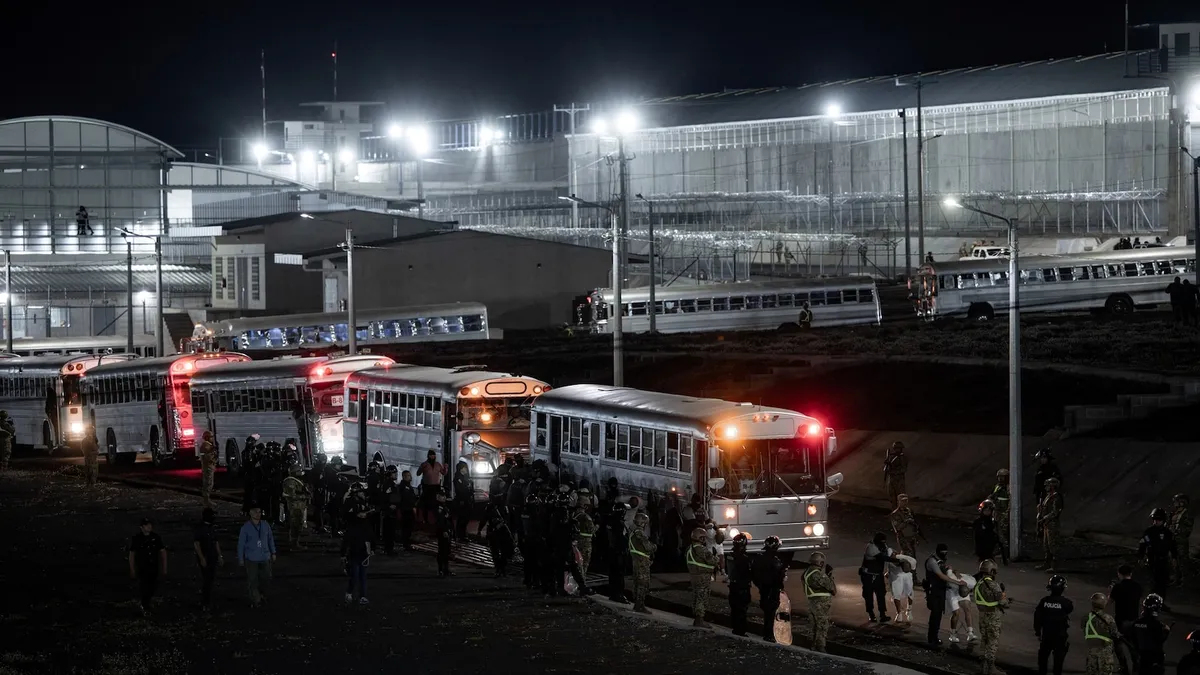
Mervin Jose Yamarte Fernandez believed he had finally reached Venezuela as he peered out the window of the deportation plane. However, the sight of a sign indicating "San Salvador" quickly shattered that belief, followed by unsettling screams from fellow detainees. In an interview with ABC News conducted in Spanish, Yamarte Fernandez recounted the traumatic experience he and over 250 other Venezuelan migrants faced after being deported from the United States to El Salvador’s notorious CECOT prison in March.
The deportation was executed under the Trump administration's invocation of the Alien Enemies Act, a 18th-century law that allows for the removal of noncitizens with minimal legal protections. Officials justified the deportation by labeling the Venezuelan gang Tren de Aragua as a hybrid criminal organization threatening the U.S. security. Recently, Yamarte Fernandez and his fellow detainees were returned to Venezuela as part of a prisoner swap.
Upon their arrival in El Salvador, Yamarte Fernandez and two compatriots detailed their horrific treatment at CECOT, alleging they were subjected to physical abuse and denied legal representation. The men vehemently denied any affiliation with Tren de Aragua. Yamarte Fernandez described the brutality that began as soon as they disembarked from the plane, where they were handcuffed and immediately taken to CECOT. “You’re going to see real hell,” an officer allegedly warned him upon arrival.
Yamarte Fernandez recounted the degrading treatment they endured, stating, “They wouldn’t let us get dressed. If you tried to put on boxers, they’d hit you with a stick.” He described the physical toll of the abuse, noting severe bruising and psychological distress among the detainees. Initially housed in a cramped cell with ten other individuals, he was later moved to a significantly overcrowded environment with approximately 80 men.
Another detainee, Francisco Garcia Casique, shared his experience of enduring both physical and psychological torment at CECOT. He recalled being told by officers that they would never leave the prison and that even high-profile figures like the Pope or Venezuelan President Nicolas Maduro could not save them. Garcia Casique, who had worked as a barber in the U.S., expressed confusion over his deportation, stating, “They linked me to a gang, but they never showed me any crimes that proved I was a criminal.”
Ysqueibel Penaloza also described feeling as though he had been kidnapped by U.S. authorities, experiencing a complete lack of access to legal counsel or communication with the outside world. He characterized the conditions at CECOT as rife with both physical and psychological abuse, emphasizing the humiliation they faced, including being forced to strip in front of guards.
In a surprising turn of events, both Yamarte Fernandez and Penaloza reported that last Monday, prison officers began to provide better treatment, including visits from doctors and nutritionists. They were given basic hygiene products and even received new clothes, culminating in a moment of joy when they learned of their impending release. “We sang and screamed and we thanked God,” Yamarte Fernandez recalled.
In a statement to ABC News, DHS Assistant Secretary Tricia McLaughlin defended the actions taken against the Venezuelan migrants, asserting that they had been sent to CECOT because they posed a threat to American safety. McLaughlin labeled Tren de Aragua and MS-13 as among the most violent gangs globally, emphasizing the U.S. government’s commitment to protecting its citizens from these threats. However, the Department of Homeland Security did not address the allegations of abuse made by the detainees.
After enduring such traumatic experiences, both Penaloza and Garcia Casique expressed their determination never to return to the United States. “They treated me like a criminal, like a terrorist,” Garcia Casique lamented. In contrast, Yamarte Fernandez expressed a desire to return to the U.S. in the future, albeit under different administration, highlighting his aspiration to provide for his family: “I have so many dreams and so many things I left behind.”